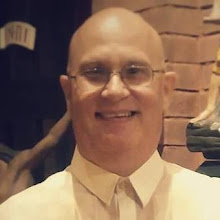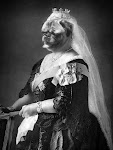Jerónimo Giménez, a name hitherto unfamiliar to me, will be familiar to devotees of Spanish Zarzuela. Giménez (1854-1923) was a prolific composer, churning out several Zarauela a year. The Interlude from "La Boda de Luis Alanzo"(the marriage of Luis Alanzo) is a brief 6 minute romp full of rhythm, fanfare, folk melodies and hijinks.
I was first introduced to the music of Roberto Sierra through a recording of his 3 previous Sinfonias on Albany records. Although the performances seemed fine, I came away somewhat unimpressed and found the music mostly unmemorable. I was most favorable towards the Sinfonia # 1 from 2004, a more substantial and dramatic work than the other two; number 3 (subtitled "La Salsa") reminding me too much of "El Salon Mexico" or Gershwin's "Cuban Overture". The latest, Sinfonia # 4 (premiered by Guerrero and his Nashville Symphony in 2009), is certainly festooned, chock-full and even loaded with Latin percussion and color, but is a very tense, dramatic and intricately designed work.
In 4 shortish movements totaling 25 some minutes, Sierra uses the Latin elements, pulsing percussion, talking bongos, shimmering mallets, to advance his dramatic argument. Quite effective was languid 3rd movement, "Tiempo de Bolero", evoking the slow, sultry dance form in a complex, contrapuntal style, keeping the dramatic tension of the work flowing. The brilliant "Muy Rapido" finale, was colorful and reminiscent of the first movement bringing the Sinfonia to a satisfying and powerful conclusion.
In among all the Spanish and Latin American flavored works comes the Shostakovich Cello Concerto #2 with Alisa Weilerstein the soloist. Reservations about this being a most odd, about-face selection disappeared when you realized the spareness and coolness of this most austere work was like a stiff, icy shot of Stoli in between rounds of sweet Cuba libres or complex Piña Coladas. The work carried on the power and drama of the Sinfonia # 4 in a subtle, raw manner; a most welcome contrast to the other works that wore their emotion on their sleeves. Guerrero led a well paced and generally finely balanced performance of this strange work. The orchestra is more frequently used as a chamber ensemble than as a large force with prominence to the extensive percussion, which in this performance had a tendency to be too commanding at times, but handled the death rattle ending with dry finesse.
Weilerstein captured the often wide ranging expressions of the demanding cello solo; brittle and acerbic when called up yet dramatic and warm when the lyrical side of work broke through the gloom. Other performances I have heard have done a better job of integrating these bi polar extremes of mood, but this performance held together quite nicely and was the perfect foil to the more gregarious works on the program.
Serving as the bottom slice of bread this Latin-Russian sandwich was Ravel's homage to Spain, the impressionistic Rhapsodie Espagnole. Appropriately dreamy and veiled in the opening "Prelude de la Nuit" and following "Malagueña" and "Habanera" dances, the Rapsodie ended in a vibrant, colorful "Feria", closing the concert much in the way it began.




